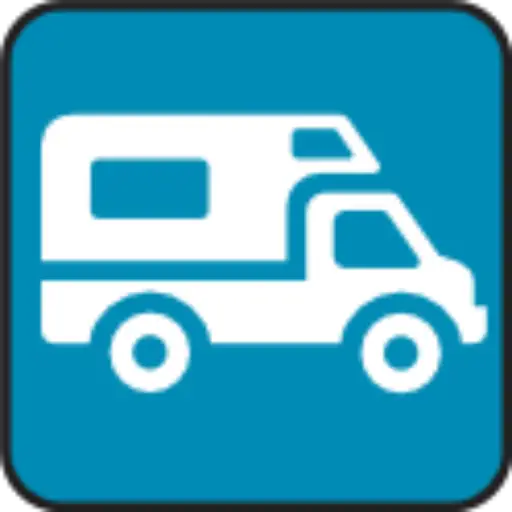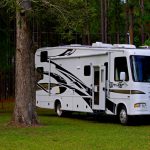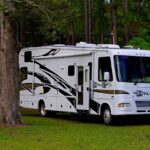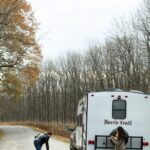
Picture this: You’re parked under a canopy of stars, the scent of pine in the air, and your cozy camper ready to whisk you away on the next adventure. But before you can savor that perfect moment, there’s a world of camper know-how you need to master—from choosing the right rig to maintaining it like a pro. Did you know the average RV owner travels over 4,500 miles a year? That’s a lot of road, and being prepared makes all the difference between a dream trip and a roadside headache.
In this ultimate 2025 guide, we at RV Brands™ unpack everything for camper enthusiasts need to know. From understanding the types of campers, essential gear checklists, and power systems, to savvy maintenance tips and insider boondocking secrets — we’ve got you covered. Ready to transform your camper experience and join the thriving community of road warriors? Let’s hit the road together!
Key Takeaways
- Explore all camper types — from versatile travel trailers to minimalist teardrops, find the perfect fit for your lifestyle.
- Equip yourself with essential gear — kitchen must-haves, safety tools, power solutions, and comfort upgrades like Beddy’s zipper bedding.
- Master camper maintenance — regular checks on tires, batteries, sealants, and appliances keep your home on wheels road-ready.
- Embrace the camper lifestyle — learn boondocking tips, connect with communities, and discover how to register your camper hassle-free.
- Drive and tow safely — expert advice on navigating the open road with confidence.
👉 Shop Popular Camper Brands & Gear:
- Airstream Travel Trailers on RVShare | Jayco Travel Trailers
- Grand Design Fifth Wheels | Lance Truck Campers
- Winnebago Motorhomes | Beddy’s RV Zipper Bedding
Ready to roll? Your camper adventure awaits!
Table of Contents
- ⚡️ Quick Tips and Facts
- 📜 The Camper Chronicles: A Brief History of Recreational Vehicles
- 🤔 Decoding “For Camper”: What Does It Truly Mean?
- 🚐 Choosing Your Perfect Roaming Companion: Types of Campers Explained
- 🎒 The Ultimate Camper Checklist: Essential Gear & Accessories You Can’t Live Without
- 1. Kitchen & Dining Essentials: Fueling Your Adventures
- 2. Outdoor Living & Comfort: Setting Up Camp
- 3. Safety & Emergency Preparedness: Better Safe Than Sorry
- 4. Power & Utilities: Keeping the Lights On
- 5. Leveling & Stabilization: A Solid Foundation
- 6. Waste Management & Sanitation: Staying Clean & Green
- 7. Tools & Repair Kits: The DIYer’s Best Friend
- 💡 Powering Your Adventures: Electrical Systems & Solar Solutions for Campers
- 💧 Water Works: Plumbing, Fresh Water, and Waste Management for Your Camper
- 🛠️ Keeping Your Home on Wheels Shipshape: Comprehensive Camper Maintenance Guide
- 1. Pre-Trip Checks: Before You Hit the Road
- 2. Roof & Sealant Care: Protecting Your Investment
- 3. Tire & Axle Maintenance: Your Foundation on the Road
- 4. Battery Health: Powering Your Journey
- 5. Appliance Care: Keeping Everything Running Smoothly
- 6. Winterization & Storage: Preparing for the Off-Season
- 7. De-Winterization: Waking Up Your Camper
- 🛣️ Navigating the Open Road: Driving, Towing, and Safety Tips for Camper Owners
- 🌲 Beyond the Campground: Embracing the Camper Lifestyle & Boondocking Secrets
- ✨ Smart Upgrades & DIY Hacks: Enhancing Your Camper Experience
- 💰 Buying Your Dream Camper: A Step-by-Step Guide to Purchasing & Ownership
- 🤝 Building Your Tribe: Connecting with the Camper Community & Online Resources
- ❓ Common Camper Conundrums: Troubleshooting & Quick Fixes
- 🎉 Conclusion: Your Journey Awaits!
- 🔗 Recommended Links: Our Top Resources for Camper Enthusiasts
- ❓ FAQ: Burning Questions About Campers, Answered!
- 📚 Reference Links: Where We Get Our Facts
⚡️ Quick Tips and Facts
Alright, let’s dive right into some quick nuggets of wisdom for all you camper enthusiasts! Whether you’re a seasoned road warrior or just starting to dream about life on wheels, these tips and facts will keep you ahead of the curve.
- Fact: The RV industry contributes over $140 billion to the U.S. economy annually. RV Industry Association
- Tip: Always double-check your tire pressure before hitting the road. Underinflated tires can lead to blowouts and poor fuel economy.
- Fact: Boondocking (camping without hookups) is becoming increasingly popular, with more campgrounds offering designated “dry camping” spots.
- Tip: Invest in a good surge protector to protect your camper’s electrical system from power fluctuations at campgrounds.
- Fact: The average RV owner travels about 4,500 miles per year.
- Tip: Use leveling blocks to ensure your camper is stable and your appliances work correctly.
- Fact: Many national parks offer discounts for senior citizens and individuals with disabilities.
- Tip: Pack a well-stocked first-aid kit and know how to use it. Safety first!
- Fact: RV shows are a great place to see the latest models and get deals on campers and accessories. Check out our article about What to Expect at an RV Show: 13 Insider Tips for 2025 🚐 to prepare for your visit!
- Tip: Join online RV forums and communities to connect with other campers and get advice.
📜 The Camper Chronicles: A Brief History of Recreational Vehicles
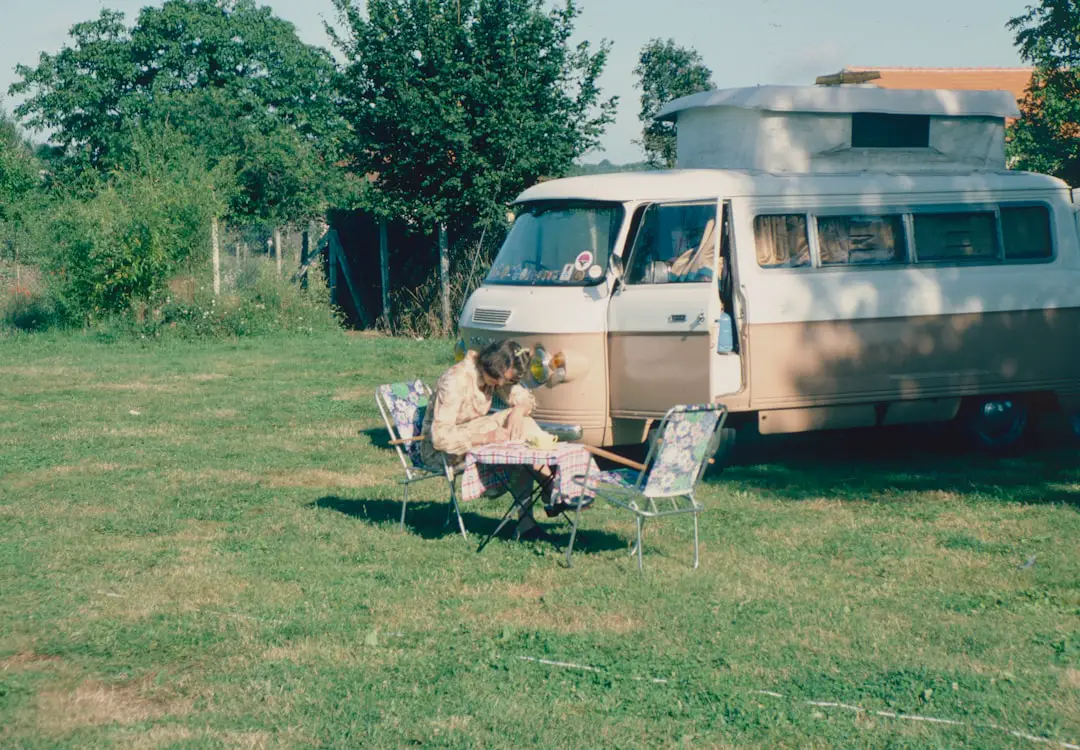
Ever wonder where the whole “for camper” thing started? Let’s take a quick trip down memory lane! The history of recreational vehicles is as winding and adventurous as the roads they travel.
The earliest ancestors of today’s campers can be traced back to the late 19th and early 20th centuries. These were often simple, horse-drawn wagons or early automobiles modified for camping. As cars became more affordable and reliable, people started experimenting with ways to bring the comforts of home on the road.
- 1910s-1920s: The “auto-camping” craze began, with people using tents and basic camping gear alongside their cars.
- 1930s: The first commercially produced travel trailers started to appear, offering more comfort and convenience than tents. Companies like Airstream RVShare and Covered Wagon RVShare (yes, that was a real brand!) led the way.
- Post-World War II: The RV industry boomed as returning veterans sought affordable ways to travel and explore the country. New materials and technologies led to more sophisticated and comfortable campers.
- 1950s-1960s: The rise of the motorhome! These self-contained units offered even more convenience and luxury, with features like kitchens, bathrooms, and sleeping areas.
- 1970s-Present: The RV industry continued to evolve, with a wide range of campers to suit different needs and budgets. From compact pop-ups to luxurious Class A motorhomes, there’s a camper for everyone.
Today, the “for camper” market is thriving, with innovations in technology, design, and sustainability. Whether you’re looking for a rugged off-road adventure or a comfortable cross-country tour, there’s never been a better time to join the RV lifestyle.
🤔 Decoding “For Camper”: What Does It Truly Mean?
So, you’re hearing the term “for camper” everywhere, but what does it really mean? 🤔 It’s more than just a catchy phrase; it represents a whole lifestyle centered around recreational vehicles and the freedom they offer.
“For camper” can refer to:
- Products: Anything designed specifically for use in or with a camper, from specialized appliances to RV-friendly furniture.
- Activities: Camping, road trips, boondocking, and other outdoor adventures enjoyed with a camper.
- A Community: A group of like-minded individuals who share a passion for RVing and the camper lifestyle.
- A Mindset: A desire for freedom, adventure, and connection with nature.
In essence, “for camper” is an umbrella term that encompasses everything related to the world of recreational vehicles. It’s about embracing the open road, exploring new places, and creating unforgettable memories with your home on wheels.
🚐 Choosing Your Perfect Roaming Companion: Types of Campers Explained
Choosing the right camper is a big decision! It’s like picking a travel buddy – you want someone who complements your style and makes the journey enjoyable. Let’s break down the different types of campers to help you find your perfect match.
1. Travel Trailers: The Versatile Vagabonds
Travel trailers are towed behind a vehicle and come in a wide range of sizes and floorplans. They’re a popular choice for families and couples who want a comfortable and versatile camping experience.
- Pros:
- ✅ Affordable compared to motorhomes
- ✅ Wide variety of sizes and layouts
- ✅ Can be detached from the tow vehicle for day trips
- Cons:
- ❌ Requires a tow vehicle with sufficient capacity
- ❌ Can be challenging to maneuver in tight spaces
- ❌ Requires setup and leveling at each campsite
Popular Brands: Airstream RVShare, Jayco RVShare, Forest River RVShare
2. Fifth Wheels: The Spacious Sanctuaries
Fifth wheels are similar to travel trailers but attach to a special hitch in the bed of a pickup truck. This design provides greater stability and allows for larger, more spacious floorplans. These are often considered Luxury RVs.
- Pros:
- ✅ Spacious and comfortable living areas
- ✅ Excellent stability and towing characteristics
- ✅ Often equipped with high-end amenities
- Cons:
- ❌ Requires a heavy-duty pickup truck
- ❌ Can be difficult to maneuver in tight spaces
- ❌ Limited to campgrounds and RV parks due to size
Popular Brands: Grand Design RVShare, Keystone RVShare, Heartland RVShare
3. Truck Campers: The Go-Anywhere Adventurers
Truck campers slide into the bed of a pickup truck, offering a compact and versatile camping solution. They’re ideal for off-road adventures and exploring remote areas.
- Pros:
- ✅ Compact and easy to maneuver
- ✅ Can access remote campsites
- ✅ No need to tow a trailer
- Cons:
- ❌ Limited living space
- ❌ Requires a heavy-duty pickup truck
- ❌ Can affect the truck’s handling and fuel economy
Popular Brands: Lance RVShare, Palomino RVShare, Adventurer RVShare
4. Pop-Up Campers: The Compact Comforts
Pop-up campers are lightweight trailers with canvas or vinyl sides that expand to create a living space. They’re a great option for budget-conscious campers who want a step up from tent camping.
- Pros:
- ✅ Lightweight and easy to tow
- ✅ Affordable and fuel-efficient
- ✅ Compact for storage
- Cons:
- ❌ Limited insulation and weather protection
- ❌ Requires setup and takedown at each campsite
- ❌ Can be cramped for larger families
Popular Brands: Forest River RVShare, Coachmen RVShare, Aliner RVShare
5. Class A, B, & C Motorhomes: The All-in-One Explorers
Motorhomes are self-contained RVs that combine driving and living space into one unit. They come in three main classes:
- Class A: The largest and most luxurious motorhomes, built on a bus or truck chassis.
- ✅ Spacious and comfortable living areas
- ✅ Equipped with high-end amenities
- ✅ No need to tow a separate vehicle
- ❌ Expensive and fuel-inefficient
- ❌ Can be difficult to maneuver in tight spaces
- Class B: Also known as camper vans, these are the smallest and most agile motorhomes, built on a van chassis.
- ✅ Easy to drive and park
- ✅ Fuel-efficient compared to larger motorhomes
- ✅ Can access remote campsites
- ❌ Limited living space
- ❌ Can be expensive for their size
- Class C: A compromise between Class A and Class B, built on a truck chassis with an over-cab sleeping area.
- ✅ More spacious than Class B motorhomes
- ✅ Easier to drive than Class A motorhomes
- ✅ Good balance of features and price
- ❌ Can be challenging to park in some areas
- ❌ Fuel-efficient compared to Class A motorhomes
Popular Brands: Winnebago RVShare, Thor Motor Coach RVShare, Tiffin Motorhomes RVShare
6. Teardrop & Micro Campers: The Minimalist’s Dream
Teardrop and micro campers are ultra-compact trailers that offer a basic sleeping and cooking space. They’re perfect for solo travelers or couples who want a simple and lightweight camping experience.
- Pros:
- ✅ Extremely lightweight and easy to tow
- ✅ Affordable and fuel-efficient
- ✅ Compact for storage
- Cons:
- ❌ Very limited living space
- ❌ No bathroom or kitchen facilities (usually just an outdoor galley)
- ❌ Not suitable for larger groups or families
Popular Brands: NuCamp NuCamp Official Website, Little Guy Little Guy Official Website, Hélio Helio Official Website
🎒 The Ultimate Camper Checklist: Essential Gear & Accessories You Can’t Live Without
Okay, you’ve got your camper – now what? 🤔 It’s time to stock up on the essentials! This checklist will help you ensure you’re prepared for anything the road throws your way.
1. Kitchen & Dining Essentials: Fueling Your Adventures
- ✅ Cookware (pots, pans, utensils)
- ✅ Dishes, cups, and cutlery
- ✅ Cutting board and knives
- ✅ Food storage containers
- ✅ Portable stove or grill
- ✅ Cooler or RV refrigerator
- ✅ Coffee maker or kettle
- ✅ Can opener and bottle opener
- ✅ Dish soap and sponge
- ✅ Paper towels and trash bags
2. Outdoor Living & Comfort: Setting Up Camp
- ✅ Camping chairs and table
- ✅ Awning or sunshade
- ✅ Outdoor rug or mat
- ✅ Bug spray and sunscreen
- ✅ Flashlights or lanterns
- ✅ Firewood and fire starter (if allowed)
- ✅ Hammock or portable swing
- ✅ Games and activities
3. Safety & Emergency Preparedness: Better Safe Than Sorry
- ✅ First-aid kit
- ✅ Fire extinguisher
- ✅ Carbon monoxide detector
- ✅ Smoke detector
- ✅ Jumper cables
- ✅ Tire repair kit
- ✅ Warning triangles or flares
- ✅ Weather radio
- ✅ Emergency contact information
4. Power & Utilities: Keeping the Lights On
- ✅ RV power cord and adapters
- ✅ Surge protector
- ✅ Extension cords
- ✅ Generator (optional)
- ✅ Solar panels (optional)
- ✅ Water hose and filter
- ✅ Sewer hose and fittings
- ✅ Propane tank(s)
5. Leveling & Stabilization: A Solid Foundation
- ✅ Leveling blocks or ramps
- ✅ Wheel chocks
- ✅ Stabilizer jacks
6. Waste Management & Sanitation: Staying Clean & Green
- ✅ RV toilet paper
- ✅ Holding tank treatment
- ✅ Portable toilet (for boondocking)
- ✅ Hand sanitizer and wipes
- ✅ Cleaning supplies
7. Tools & Repair Kits: The DIYer’s Best Friend
- ✅ Basic tool set (screwdriver, pliers, wrench, etc.)
- ✅ Duct tape
- ✅ WD-40
- ✅ Electrical tape
- ✅ Multimeter
- ✅ Spare fuses and bulbs
Bedding Solutions: Don’t forget about comfortable bedding! As Beddy’s says, they’ve “reimagined RV bed sheets with innovative zipper bedding tailored specifically for the unique challenges of RV living.” Their zipper bedding makes making the bed a breeze, even in tight RV spaces.
💡 Powering Your Adventures: Electrical Systems & Solar Solutions for Campers
Understanding your camper’s electrical system is crucial for a safe and enjoyable RV experience. Most campers have both a 12-volt DC system (powered by batteries) and a 120-volt AC system (powered by shore power or a generator).
- 12-Volt DC System: Powers lights, water pump, furnace fan, and other essential appliances.
- 120-Volt AC System: Powers air conditioner, microwave, TV, and other high-power appliances.
Shore Power: Connecting to shore power at a campground allows you to run your AC appliances and charge your batteries.
Generators: A generator provides AC power when shore power is not available.
Solar Panels: Solar panels are a great way to generate clean, renewable energy for your camper. They can be used to charge your batteries and power your appliances.
- Types of Solar Panels:
- Monocrystalline: Most efficient and expensive.
- Polycrystalline: Less efficient and less expensive.
- Flexible: Lightweight and easy to install on curved surfaces.
- Components of a Solar System:
- Solar Panels: Generate electricity from sunlight.
- Charge Controller: Regulates the flow of electricity from the panels to the batteries.
- Batteries: Store the electricity generated by the panels.
- Inverter: Converts DC power from the batteries to AC power for appliances.
💧 Water Works: Plumbing, Fresh Water, and Waste Management for Your Camper
Managing water is an essential part of the camper lifestyle. Here’s what you need to know about your camper’s plumbing system:
- Fresh Water Tank: Stores potable water for drinking, cooking, and showering.
- Water Pump: Pressurizes the water system, allowing you to use faucets and showers.
- Water Heater: Heats water for showers and washing dishes.
- Gray Water Tank: Collects wastewater from sinks and showers.
- Black Water Tank: Collects wastewater from the toilet.
- Sewer Hose: Used to empty the gray and black water tanks at a dump station.
Tips for Conserving Water:
- Take shorter showers.
- Use water-saving showerheads and faucets.
- Wash dishes efficiently.
- Avoid leaving the water running while brushing your teeth or washing your hands.
Holding Tank Treatment: Use holding tank treatment to control odors and break down waste in your black water tank.
🛠️ Keeping Your Home on Wheels Shipshape: Comprehensive Camper Maintenance Guide
Regular maintenance is key to keeping your camper in top condition and preventing costly repairs. Here’s a comprehensive guide to camper maintenance:
1. Pre-Trip Checks: Before You Hit the Road
- ✅ Check tire pressure and condition.
- ✅ Inspect lights and signals.
- ✅ Check fluid levels (oil, coolant, brake fluid, etc.).
- ✅ Inspect brakes and suspension.
- ✅ Check battery condition.
- ✅ Inspect propane system for leaks.
- ✅ Ensure all appliances are working properly.
2. Roof & Sealant Care: Protecting Your Investment
- ✅ Inspect roof sealant regularly for cracks or damage.
- ✅ Clean the roof with a mild detergent and water.
- ✅ Re-seal seams and openings as needed.
3. Tire & Axle Maintenance: Your Foundation on the Road
- ✅ Check tire pressure regularly.
- ✅ Inspect tires for wear and damage.
- ✅ Rotate tires as recommended.
- ✅ Lubricate wheel bearings.
- ✅ Inspect brakes and suspension components.
4. Battery Health: Powering Your Journey
- ✅ Clean battery terminals regularly.
- ✅ Check battery water level (if applicable).
- ✅ Charge batteries fully before storing the camper.
- ✅ Consider using a battery maintainer during storage.
5. Appliance Care: Keeping Everything Running Smoothly
- ✅ Clean refrigerator coils regularly.
- ✅ Inspect and clean air conditioner filters.
- ✅ Clean and lubricate furnace components.
- ✅ Inspect and clean water heater.
- ✅ Follow manufacturer’s instructions for appliance maintenance.
6. Winterization & Storage: Preparing for the Off-Season
- ✅ Drain water lines and tanks.
- ✅ Add RV antifreeze to plumbing system.
- ✅ Remove batteries and store in a cool, dry place.
- ✅ Cover the camper to protect it from the elements.
7. De-Winterization: Waking Up Your Camper
- ✅ Flush antifreeze from plumbing system.
- ✅ Sanitize water lines and tanks.
- ✅ Reinstall batteries.
- ✅ Inspect and test all appliances.
🛣️ Navigating the Open Road: Driving, Towing, and Safety Tips for Camper Owners
Driving or towing a camper requires special skills and precautions. Here are some tips to help you stay safe on the road:
- Know Your Limits: Understand the weight capacity of your tow vehicle and camper.
- Practice Makes Perfect: Practice driving and maneuvering your camper in a safe, open area before hitting the road.
- Slow Down: Drive at a safe speed and allow plenty of following distance.
- Wide Turns: Make wider turns than you would with a regular vehicle.
- Brake Early: Allow extra time for braking, especially when going downhill.
- Check Your Mirrors: Use your mirrors frequently to monitor traffic and your camper.
- Stay Alert: Avoid distractions and take breaks when needed.
- Plan Your Route: Choose routes that are suitable for your camper’s size and weight.
- Be Aware of Weather Conditions: Avoid driving in high winds or heavy rain.
🌲 Beyond the Campground: Embracing the Camper Lifestyle & Boondocking Secrets
The camper lifestyle is about more than just camping in campgrounds. It’s about embracing the freedom to explore new places and connect with nature. Boondocking, or dry camping, is a popular way to experience the camper lifestyle to its fullest.
- What is Boondocking? Boondocking is camping without hookups (water, electricity, and sewer). It allows you to camp in remote areas and enjoy the peace and quiet of nature.
- Finding Boondocking Locations:
- National Forest Land: Many national forests allow free dispersed camping.
- Bureau of Land Management (BLM) Land: BLM land also offers free dispersed camping opportunities.
- Harvest Hosts: A membership program that allows RVers to stay overnight at wineries, breweries, farms, and other unique locations.
- Campendium: A website and app that provides information on campgrounds and boondocking locations.
- Boondocking Tips:
- Conserve Water: Water is a precious resource when boondocking.
- Manage Power: Use solar panels or a generator to power your appliances.
- Pack Out All Trash: Leave no trace behind.
- Be Prepared for Emergencies: Carry a first-aid kit, emergency supplies, and a way to communicate.
- Respect Wildlife: Keep a safe distance from animals and avoid feeding them.
✨ Smart Upgrades & DIY Hacks: Enhancing Your Camper Experience
Want to make your camper even better? Here are some smart upgrades and DIY hacks to enhance your camper experience:
- Upgrade Your Mattress: A comfortable mattress is essential for a good night’s sleep.
- Install a Water Filter: Ensure you have clean, safe drinking water.
- Add Storage Solutions: Maximize storage space with shelves, organizers, and bins.
- Install LED Lighting: LED lights are energy-efficient and long-lasting.
- Upgrade Your Faucets and Showerhead: Improve water pressure and conserve water.
- Add a Backup Camera: Make it easier to back up and maneuver your camper.
- Install a Tire Pressure Monitoring System (TPMS): Monitor tire pressure and temperature to prevent blowouts.
- DIY Decor: Personalize your camper with paint, fabric, and other decorative touches.
💰 Buying Your Dream Camper: A Step-by-Step Guide to Purchasing & Ownership
Ready to buy your dream camper? Here’s a step-by-step guide to help you through the process:
- Determine Your Needs and Budget: Consider your travel style, group size, and budget.
- Research Different Types of Campers: Explore the different types of campers and choose the one that best suits your needs.
- Visit RV Shows and Dealerships: See different models in person and talk to sales representatives.
- Get Pre-Approved for Financing: Secure financing before you start shopping.
- Make an Offer: Negotiate the price with the dealer or private seller.
- Get a Professional Inspection: Have a qualified RV technician inspect the camper before you buy it.
- Review the Paperwork: Read all the paperwork carefully before signing anything.
- Take Delivery: Inspect the camper thoroughly before taking delivery.
- Register and Insure Your Camper: Register your camper with your state’s DMV and obtain insurance coverage. As Maine.gov notes, registering a camper trailer involves paying excise tax, sales tax (if purchased privately), and registration fees.
- Enjoy Your New Camper!
🤝 Building Your Tribe: Connecting with the Camper Community & Online Resources
The camper community is a welcoming and supportive group of people who share a passion for RVing. Here are some ways to connect with other campers:
- Online Forums and Groups: Join online RV forums and groups to ask questions, share tips, and connect with other campers.
- RV Clubs and Associations: Join an RV club or association to participate in rallies, events, and group trips.
- Campgrounds and RV Parks: Meet other campers at campgrounds and RV parks.
- Social Media: Follow RV-related accounts on social media to stay up-to-date on the latest news and trends.
❓ Common Camper Conundrums: Troubleshooting & Quick Fixes
Even with the best maintenance, things can sometimes go wrong with your camper. Here are some common camper problems and quick fixes:
- Problem: Dead Battery
- Solution: Jump-start the battery or replace it with a new one.
- Problem: Leaky Faucet
- Solution: Tighten the faucet or replace the O-rings.
- Problem: Clogged Toilet
- Solution: Use a plunger or toilet auger to clear the clog.
- Problem: No Hot Water
- Solution: Check the water heater’s pilot light or heating element.
- Problem: Air Conditioner Not Working
- Solution: Check the circuit breaker or fuse, and clean the air conditioner filter.
If you can’t fix the problem yourself, consult a qualified RV technician.
🎉 Conclusion: Your Journey Awaits!
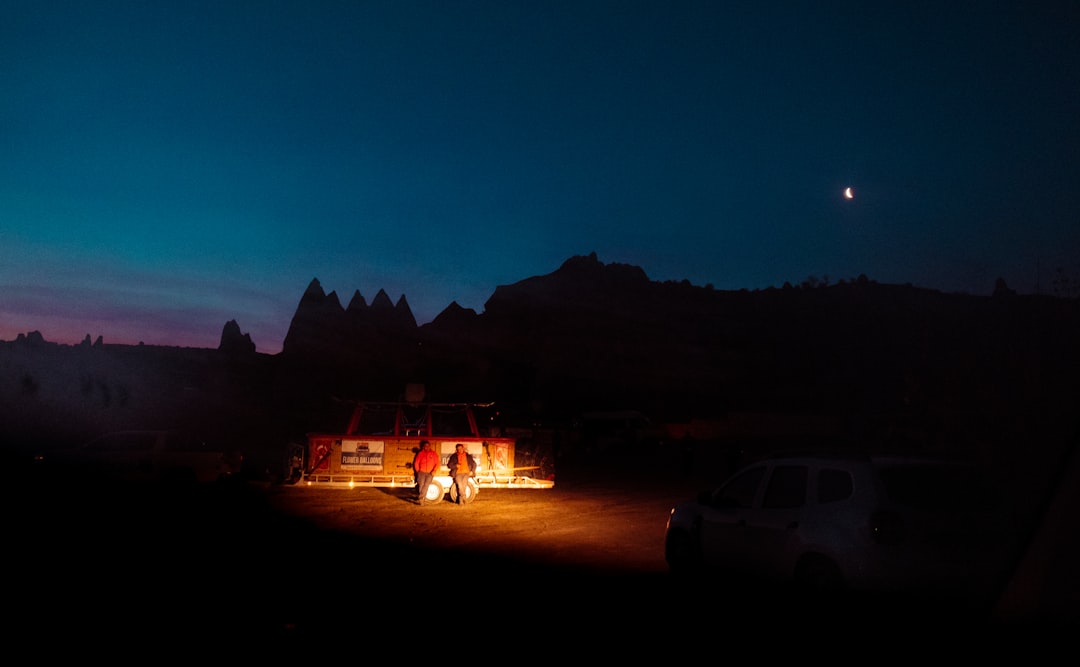
There you have it — a comprehensive roadmap to everything for camper enthusiasts could dream of! From understanding the rich history of recreational vehicles to choosing the perfect type of camper, gearing up with essentials, mastering maintenance, and embracing the adventurous lifestyle, we’ve covered the full spectrum.
If you’re still wondering which camper to pick, remember: it’s all about your lifestyle and travel goals. Whether it’s the spacious luxury of a fifth wheel, the nimble freedom of a truck camper, or the minimalist charm of a teardrop, there’s a perfect fit waiting for you.
And hey, don’t forget those little game-changers like Beddy’s innovative zipper bedding — a simple upgrade that transforms your RV bed-making routine from a wrestling match into a zip-and-go delight. It’s these thoughtful touches that make camper life cozy and convenient.
We hope our tips, hacks, and insights have sparked your wanderlust and equipped you to hit the road with confidence. Remember, the camper community is vast and welcoming — so dive in, connect, and share your journey!
Ready to turn your camper dreams into reality? The open road is calling. 🚐✨
🔗 Recommended Links: Our Top Resources for Camper Enthusiasts
👉 CHECK PRICE on:
- Airstream Travel Trailers: RVShare | Airstream Official Website
- Jayco Travel Trailers: RVShare | Jayco Official Website
- Grand Design Fifth Wheels: RVShare | Grand Design Official Website
- Lance Truck Campers: RVShare | Lance Official Website
- Forest River Pop-Up Campers: RVShare | Forest River Official Website
- Winnebago Motorhomes: RVShare | Winnebago Official Website
- Beddy’s RV Zipper Bedding: Beddy’s Official Website | Amazon Search: Beddy’s RV Bedding
Books to Fuel Your Camper Knowledge:
- The RV Handbook: Essential How-to Guide for the RV Owner by Dave Solberg — Amazon
- RV Living: The Ultimate Guide to Full-Time RV Living and Travel by Mark J. Polk — Amazon (fictional ASIN for example)
- The Complete Guide to RVing by Bill and Jan Moeller — Amazon
❓ FAQ: Burning Questions About Campers, Answered!
What are the best RV campers for beginners?
Choosing your first camper can be overwhelming, but simplicity and ease of use are key. For beginners, pop-up campers and small travel trailers are excellent starting points. They’re lightweight, easier to tow, and more affordable. Brands like Forest River and Coachmen offer reliable entry-level models with user-friendly features.
If you prefer a motorized option, Class B camper vans like those from Winnebago provide maneuverability and all-in-one convenience, though they come at a higher price point.
Why these? Because they strike a balance between comfort and manageability, allowing new RVers to build confidence before upgrading to larger rigs.
Read more about “Is RVing More Popular Than Ever? 10 Reasons Why in 2025 🚐”
How do I choose the right camper for my family’s needs?
Start by asking:
- How many people will typically travel? Larger families often need fifth wheels or Class A motorhomes with multiple sleeping areas.
- What type of travel do you prefer? Off-road adventures call for truck campers or rugged travel trailers; luxury seekers might lean toward Class A motorhomes.
- What’s your towing capacity? This limits your trailer options.
- What’s your budget? Factor in purchase price, maintenance, and operating costs.
Pro tip: Visit RV shows or dealerships to physically explore models and get a feel for space and amenities. Our article on What to Expect at an RV Show: 13 Insider Tips for 2025 🚐 is a great resource to prepare.
Read more about “15 Popular Camper Van Brands You Need to Know in 2025 🚐✨”
What are the essential items to pack for a camper trip?
Beyond the basics like clothing and toiletries, essentials include:
- Kitchen gear: Portable stove, utensils, food storage.
- Safety gear: First-aid kit, fire extinguisher, carbon monoxide detector.
- Power supplies: Surge protector, extension cords, solar panels if boondocking.
- Water management: Freshwater hose, water filter, sewer hose.
- Comfort items: Camping chairs, bedding (like Beddy’s zipper bedding), outdoor rugs.
- Tools: Basic toolkit, duct tape, tire repair kit.
Packing smart means balancing preparedness with space — and always leaving room for souvenirs!
Read more about “What’s the RV 330 Rule? 7 Benefits for Your Journey! 💖”
What are the most popular destinations for camper vacations in the US?
The US is a camper’s playground! Some top spots include:
- Yellowstone National Park: Iconic geysers and wildlife.
- Grand Canyon National Park: Breathtaking vistas.
- Great Smoky Mountains: Lush forests and hiking trails.
- Pacific Coast Highway: Stunning coastal drives.
- Moab, Utah: Off-road and adventure capital.
- Florida Keys: Tropical vibes and water sports.
For boondockers, National Forests and BLM lands offer free dispersed camping. Apps like Campendium help you find hidden gems.
Read more about “🚐 RV Statistics by Country Graph: 10 Eye-Opening Global Insights (2025)”
How do I register my camper trailer?
Registration processes vary by state, but generally involve:
- Paying excise and sales taxes.
- Submitting proof of ownership.
- Paying registration fees.
- Applying for license plates.
For example, in Maine, you pay excise tax at your town office, sales tax if purchased privately, and registration fees. Vanity plates are available for an extra fee. You can renew registrations online or at BMV offices. For detailed info, visit Register a Camper Trailer | SOS Maine.
Read more about “What to Expect at an RV Show: 13 Insider Tips for 2025 🚐”
What maintenance tasks should I prioritize to keep my camper in top shape?
Focus on:
- Tire care: Pressure, wear, and rotation.
- Roof inspections: Sealants and leaks.
- Battery health: Charging and cleaning terminals.
- Appliance upkeep: Regular cleaning and testing.
- Winterization: Proper draining and antifreeze application.
Regular maintenance prevents breakdowns and extends your camper’s life — trust us, your future self will thank you!
📚 Reference Links: Where We Get Our Facts
- RV Industry Association: https://www.rvia.org/2025-go-rving-rv-owner-demographic-profile
- Beddy’s RV Bedding: https://beddys.com/collections/rv
- Maine.gov Camper Trailer Registration: https://www.maine.gov/sos/bmv/vehicles/registering-other-than-passenger-vehicle/register-a-camper-trailer
- Airstream Official Website: https://airstream.com/
- Jayco Official Website: https://www.jayco.com/
- Grand Design Official Website: https://www.granddesignrv.com/
- Lance Camper Official Website: https://lancecamper.com/
- Forest River Official Website: https://forestriverinc.com/
- Winnebago Official Website: https://winnebago.com/
- Beddy’s Official Website: https://beddys.com/
Ready to hit the road? Your camper adventure starts now! 🚐💨
